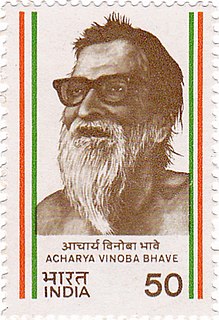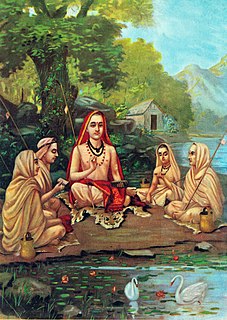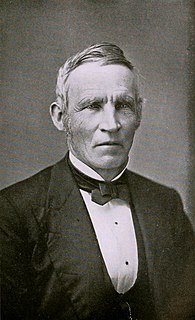A Quote by Jonathan Haidt
I think the greatest truths, the ones that you find in every culture that has any sort of history of reflection of writing, the greatest truth is that there's nothing good or bad, but thinking makes it so. That's the way Shakespeare put it. But you get basically the same idea from Buddha, from the Bhagavad Gita in India, and from the Stoics in ancient Greece and Rome.
Related Quotes
I believe that the civilization India evolved is not to be beaten in the world. Nothing can equal the seeds sown by our ancestors, Rome went, Greece shared the same fate; the might of the Pharaohs was broken; Japan has become Westernized; of China nothing can be said; but India is still, somehow or other, sound at the foundation.
If you start thinking about the kids being born now, for them the computer is ancient history. So one imagines that when children think of it as the only place to be, because there isn't anywhere else, then the geniuses of those generations will find their way into doing something that is impressive and as good as a Shakespeare or a Cervantes. But nowadays, we can't see that. We're not close enough to it yet.
Actually learning ancient Greek was a brilliant practice of mine because you'd sit there and you'd read a sentence and sometimes it would take you a day, an entire day to figure out one sentence. But it really trains you to be analytical, to think in a certain way to try and interpret what something means. So I've been thinking like that my whole life and then I love Machiavelli and I love thinking about politics that way. So it's sort of all that put together and then the good luck to meet a man who is sort of interested in the same thing.
When doubts haunt me, when disappointments stare me in the face, and I see not one ray of hope on the horizon, I turn to Bhagavad-gita and find a verse to comfort me; and I immediately begin to smile in the midst of overwhelming sorrow. Those who meditate on the Gita will derive fresh joy and new meanings from it every day.
I heard about Bhagavad Gita very early in my childhood, from the age of five onwards. It was one of the earliest things I started to read when I started to read. And it was very much a part of my consciousness. In the beginning, I saw the "Bhagavad Gita" as a text that was very classical, much like the "Iliad" and the "Odyssey" - a mythical saga that showed the eternal conflict between good and evil. But much later, as I grew up, I realized that it was much more than that.
The greatest achievement is selflessness.
The greatest worth is self-mastery.
The greatest quality is seeking to serve others.
The greatest precept is continual awareness.
The greatest medicine is the emptiness of everything.
The greatest action is not conforming with the worlds ways.
The greatest magic is transmuting the passions.
The greatest generosity is non-attachment.
The greatest goodness is a peaceful mind.
The greatest patience is humility.
The greatest effort is not concerned with results.
The greatest meditation is a mind that lets go.
The greatest wisdom is seeing through appearances.
There have been a number of philosophers who have reveled in the dismantling of truth. I think they did so with good ethical motives, and for good philosophical reasons. I can see the sense in what they were talking about; the idea that truth is often claimed by elites in order to further certain agendas. They crowd-out alternative perspectives - particularly those of the powerless. But the undermining of truth contributed - in the weird, indirect way that philosophy contributes to the culture - to a rejection of the idea of truth as having any kind of proper meaning at all.



































